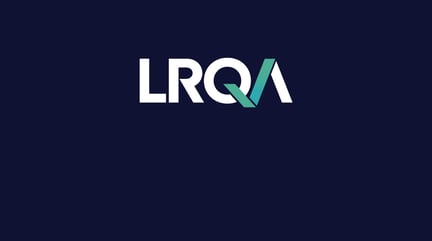As the world celebrates World Quality Week, we take a moment to reflect on the evolution of quality management, featuring insights from Carl Rogers and Martin Cottam.
The evolution of quality management
In the late 1980s, the International Organization for Standardization (ISO), published the first Quality Management System (QMS) standard, ISO 9001, setting a universal precedent for standardised frameworks for quality management and laying the groundwork for other management system standards such as ISO 14001 for environmental management and ISO 45001 for occupational health and safety. These standards—initially aimed at meeting regulatory demands and maintaining consistency across industries—help organisations keep pace with consumer expectations and market needs.
Over time, however, quality has shifted beyond the static aim of compliance. Martin Cottam, Chair of the ISO Technical Committee for Occupational Health and Safety and former Quality Director at LRQA, emphasises “What we see now is that quality is not simply about adherence; it is a proactive strategy for long-term success.” Today’s standards, such as ISO 9001, adopt a risk-based approach that requires companies to assess and improve processes continuously. By 2021, over 1.3 million organisations worldwide were certified to ISO 9001, reflecting a global commitment to quality.
The present landscape: Complexity, risk and opportunity
As businesses face increasingly dynamic risks, quality management provides essential tools for managing these complexities. Organisations today are tasked with managing risks ranging from supply chain vulnerabilities and digital transformation challenges to meeting heightened sustainability expectations:
- Digital transformation: With technologies such as AI and data analytic tools, companies can now monitor quality in real-time, predict issues and address them proactively. While these innovations enhance precision, they also introduce new layers of risk. Cottam explains, "Digitalisation offers immense potential but demands careful risk management to prevent quality failures. Effective quality management enables organisations to harness these technologies while safeguarding performance.”
- The significance of Environmental, Social and Governance (ESG): Consumer and societal demands for sustainable, transparent practices are reshaping quality management. Now more than ever, organisations are expected to balance economic success with environmental and social responsibility. Embedding quality into this sustainability agenda helps organisations not only comply with regulatory expectations but also align with consumer values, enhancing brand trust.
- Supply chain assurance: As supply chains become longer and more complex, many businesses are being required to shift their focus beyond their own operations to encompass their suppliers' practices, ensuring their supplier network meets strict standards for quality and integrity.
Driving innovation and adaptability
As the business landscape evolves, so will the role of quality management. “The future of quality lies in its potential to adopt a culture of innovation and continuous improvement, where quality becomes a mindset embedded into organisational practices” Cottam states.
- The shift from compliance to performance: Increasingly, quality management is about creating value, not just meeting regulations. In this shift, compliance serves as a foundational element, but the true potential lies in how quality systems enable performance.
- Embedding a learning culture: Creating a culture of learning and adaptability within quality management will be essential. Organisations that adopt continuous improvement at all levels can better address unexpected changes and align with the evolving expectations of consumers and regulatory bodies.
- Global alignment and the future of standards: As industries push for stronger cross-regional alignment, standards will continue evolving to support a global market. This harmonisation will help businesses apply consistent quality strategies worldwide, allowing them to operate more effectively across diverse markets.
The future of quality management
A significant development in the evolution of quality management is the pending revision of ISO 9001. In 2021, ISO initiated the revision process, with the new standard expected to be published in September 2026. This revision aims to align ISO 9001 with modern management practices, including integrating SMART access principles and the latest version of the Harmonized Structure (HS).
While timelines and specific changes are not yet confirmed, LRQA will update its channels as more information becomes available.
Carl Rogers, LRQA’s Global Head of Quality and Governance, emphasises the importance of this transition: “The upcoming revision of ISO 9001 is very timely, given all the changes we’ve seen since the current version was published in 2015—quality management among them. There’s a definite need for current requirements to evolve in step, and with factors like climate change and digital transformation in mind, the revised standard promises to offer a solid framework for organisations aiming for long-term, sustainable success.”
Conclusion
Quality management has transformed beyond a regulatory requirement, to a strategic asset that drives performance, resilience and adaptability. By embedding quality principles across all operations, organisations can navigate today’s complex challenges while strengthening themselves for future growth.
Find out how LRQA can help in addressing quality challenges.









